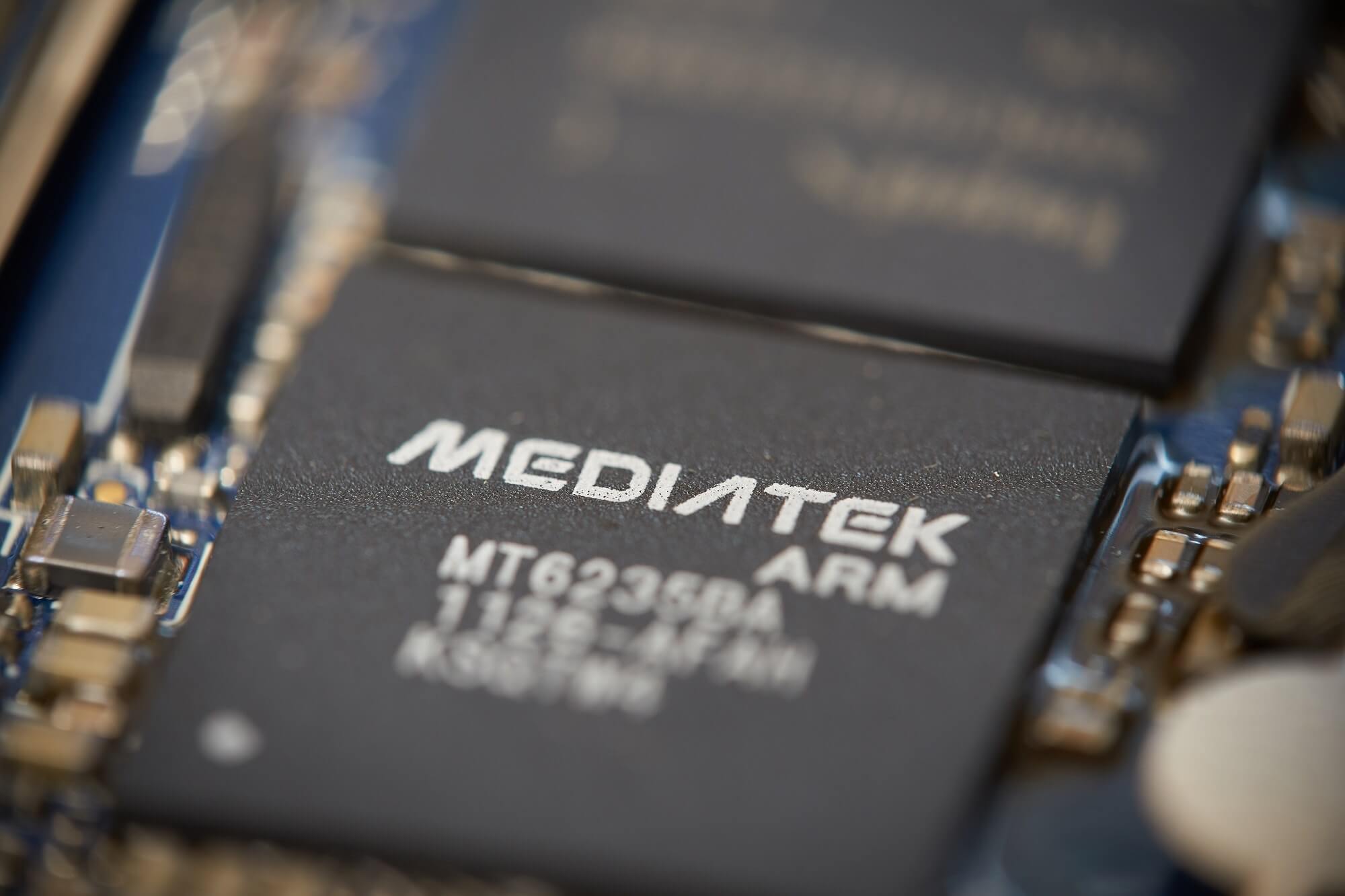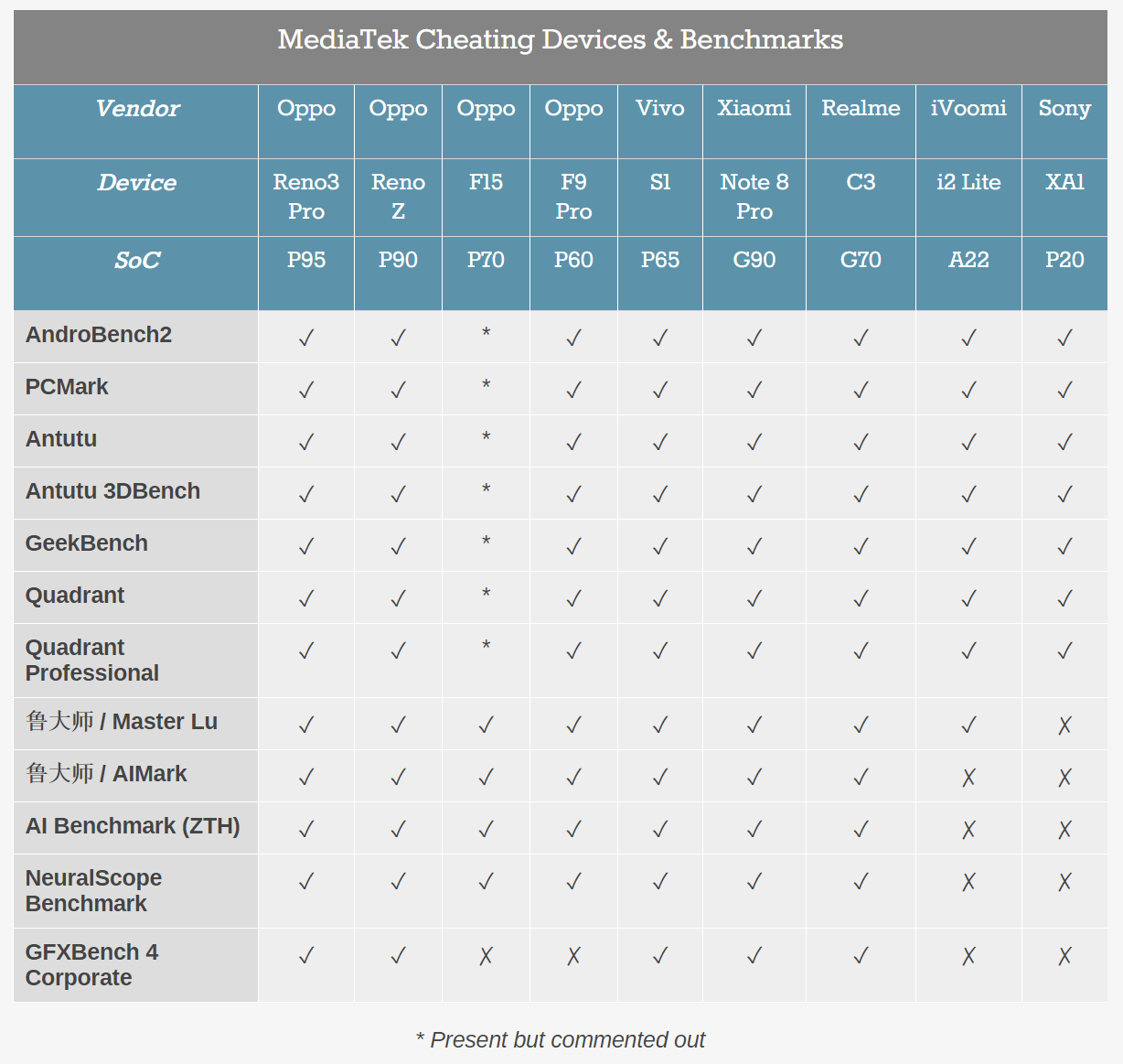A hot potato: Here's a story you've heard before: a company has been caught cheating on mobile benchmark software. Rather than being limited to phones from a particular firm, the culprit in this instance is chipset maker MediaTek, meaning multiple handsets from several vendors are engaging in the practice. Its excuse? Everyone does it.
Anandtech discovered the cheating after benchmarking the MediaTek Dimensity 1000-powered Oppo Reno3 (Chinese version), and the European version of the Oppo Reno3 Pro, which is powered by the older, lower-end Helio P95.
Strangely, the Oppo Reno3 Pro's Cortex-A75 with its two cores outperformed the Reno3 and its four-core Cortex-A77 in PCMark.
To confirm the cheating, the publication used an altered version of PCMark that can't be identified as a benchmarking tool by systems. Not too surprisingly, the P95 scored lower: a 30 percent drop in the overall score, with up to a 75 percent difference in specific workloads.
In the Chinese version of the Reno3 Pro, which uses the Snapdragon 765G, no cheating was observed when running the benchmarks.
Examining the P95-powered Reno3 Pro's firmware revealed a file with a list of popular applications and benchmarks with various power marks and management tweaks applied to them. This 'sports mode' boosts the memory controller and scheduler when the apps are running, improving performance.
Several MediaTek-powered devices, not just those from OPPO, were found to exhibit the same behavior, including the Sony Xperia XA1 that launched back in 2016, indicating this has been going on for some time. Check out the full list below.
Image credit: Anandtech
MediaTek responded to the article with a statement that claimed boosting the performance in benchmark tests shows the SoC's full capabilities, and that the chipsets scale in performance for certain resource-intensive apps. It also added that some brands give consumers the option to enable "sports mode" or "monster mode" in specific regions, while the modes are switched off in other locations.
MediaTek emphasized that manufacturers have the final say on what optimizing they want to include in APKs, and that "benchmarking optimizations" are an industry standard. When Huawei was caught manipulating benchmark scores, it also used the "others do it" excuse.
Sadly, MediaTek and Huawei are right: most manufacturers are guilty of this shady practice. OnePlus and Meizu did the same thing with the OnePlus 3 and OnePlus 5, and Samsung had to pay $13.4 million in damages after source code was discovered in the Galaxy S4 that detected when certain benchmarking software was running, at which point the GPU frequency would jump around 11 percent from 480MHz to 533MHz. The Korean firm settled the subsequent lawsuit, which meant owners got a massive $10 each.
Main image credit: g0d4ather via Shutterstock

